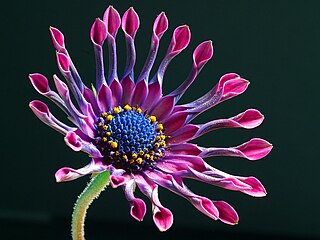
Intellectual property (IP) is a category of property that includes intangible creations of the human intellect. There are many types of intellectual property, and some countries recognize more than others. The best-known types are patents, copyrights, trademarks, and trade secrets. The modern concept of intellectual property developed in England in the 17th and 18th centuries. The term "intellectual property" began to be used in the 19th century, though it was not until the late 20th century that intellectual property became commonplace in most of the world's legal systems.

The World Intellectual Property Organization is one of the 15 specialized agencies of the United Nations (UN). Pursuant to the 1967 Convention Establishing the World Intellectual Property Organization, WIPO was created to promote and protect intellectual property (IP) across the world by cooperating with countries as well as international organizations. It began operations on 26 April 1970 when the convention entered into force. The current Director General is Singaporean Daren Tang, former head of the Intellectual Property Office of Singapore, who began his term on 1 October 2020.

A cultivar is a kind of cultivated plant that people have selected for desired traits and which retains those traits when propagated. Methods used to propagate cultivars include division, root and stem cuttings, offsets, grafting, tissue culture, or carefully controlled seed production. Most cultivars arise from deliberate human manipulation, but some originate from wild plants that have distinctive characteristics. Cultivar names are chosen according to rules of the International Code of Nomenclature for Cultivated Plants (ICNCP), and not all cultivated plants qualify as cultivars. Horticulturists generally believe the word cultivar was coined as a term meaning "cultivated variety".
In botanical nomenclature, variety is a taxonomic rank below that of species and subspecies, but above that of form. As such, it gets a three-part infraspecific name. It is sometimes recommended that the subspecies rank should be used to recognize geographic distinctiveness, whereas the variety rank is appropriate if the taxon is seen throughout the geographic range of the species.

The International Union for the Protection of New Varieties of Plants or UPOV is a treaty body with headquarters in Geneva, Switzerland. Its objective is to provide an effective system for plant variety protection. It does so by defining a blueprint regulation to be implemented by its members in national law. The expression UPOV Convention also refers to one of the three instruments that relate to the union, namely the 1991 Act of the UPOV Convention, 1978 Act of the UPOV Convention and 1961 Act of the UPOV Convention with Amendments of 1972.

Plant breeders' rights (PBR), also known as plant variety rights (PVR), are rights granted in certain places to the breeder of a new variety of plant that give the breeder exclusive control over the propagating material and harvested material of a new variety for a number of years.
Intellectual property rights (IPRs) have been acknowledged and protected in China since 1980. China has acceded to the major international conventions on protection of rights to intellectual property. Domestically, protection of intellectual property law has also been established by government legislation, administrative regulations, and decrees in the areas of trademark, copyright, and patent.
The International Code of Nomenclature for Cultivated Plants (ICNCP) is a guide to the rules and regulations for naming cultigens, plants whose origin or selection is primarily due to intentional human activity. It is also known as Cultivated Plant Code. Cultigens under the purview of the ICNCP include cultivars, Groups, and grexes. All organisms traditionally considered to be plants are included. Taxa that receive a name under the ICNCP will also be included within taxa named under the International Code of Nomenclature for algae, fungi, and plants, for example, a cultivar is a member of a species.
Kamil Eltayeb Idris is a Sudanese statesman, scholar and international civil servant. He was Director General of the World Intellectual Property Organization (WIPO) from November 1997 to September 2008. He was also head of the International Union for the Protection of New Varieties of Plants (UPOV). Idris stepped down a year early from his post as head of WIPO, amidst "allegations he misled WIPO about his age".

Árpád Bogsch was a Hungarian-American international civil servant. He was born in Budapest, Hungary, and became an American citizen in 1959. From 1973 to 1997, he was Director General of World Intellectual Property Organization (WIPO). He was also Secretary General of the International Union for the Protection of New Varieties of Plants (UPOV). He died in Geneva, Switzerland.

The following outline is provided as an overview of and topical guide to intellectual property:

The lists of cultivars in the table below are indices of plant cultivars, varieties, and strains. A cultivar is a plant that is selected for desirable characteristics that can be maintained by propagation.
Euroseeds is a non-profit association for the seed industry in the European Union and the European Economic Area. An umbrella organization of national seed associations and individual seed companies, their members represent all aspects of the European seed industry including research, plant breeding, and the production and marketing of seeds of agricultural, horticultural and ornamental plant species. It was founded in November 2000 and was granted the legal status of international non-profit International Association (AISBL) according to Belgian law in April 2002. Its headquarters are located in Brussels, Belgium.
CIOPORA is the International Community of Breeders of Asexually Reproduced Ornamental and Fruit Varieties.
The Plant Variety Protection Act of 1970 (PVPA), 7 U.S.C. §§ 2321-2582, is an intellectual property statute in the United States. The PVPA gives breeders up to 25 years of exclusive control over new, distinct, uniform, and stable sexually reproduced or tuber propagated plant varieties. A major expression of plant breeders' rights in the United States, the PVPA grants protection similar to that available through patents, but these legal schemes differ in critical respects. The PVPA should not be confused with plant patents, which are limited to asexually reproduced plants.

WIPO Lex is an online global database launched in 2010, which provides free public access to intellectual property laws, treaties and judicial decisions from around the world. The World Intellectual Property Organization (WIPO) maintains and develops the database.
Republic Act No. 8293, otherwise known as The Intellectual Property Code of the Philippines lays down the rules and regulations that grant, and enforce patents in the Philippines. Patents may be granted to technical solutions such as an inventions, machines, devices, processes, or an improvement of any of the foregoing. The technical solution must be novel, innovative, and industrially useful. In order for a technical solution to be granted a patent, the inventor must file an application to the Bureau of Patents, which will examine, and in some cases, grant its approval. The law is designed as to foster domestic creativity, to attract foreign investors, and to motivate inventors to release their products for public access.
The Constitution of Azerbaijan generally recognizes the right to intellectual property (IP), and ensures the protection of IP rights of all persons. In order to clarify the norm of Constitution, and establish the legal basis of the protection of intellectual property rights, the parliament of Azerbaijan approved some laws, and ratified international agreements.

Daren Tang Heng Shim is the fifth and current Director General of the World Intellectual Property Organization (WIPO). He is also Secretary-General of the International Union for the Protection of New Varieties of Plants (UPOV). Tang previously headed the Intellectual Property Office of Singapore (IPOS) and was a trade lawyer for the government of Singapore.

The Intellectual Property Agency of Armenia (AIPA) is the patent office of Armenia. The agency works under the supervision of the Ministry of Economy of Armenia and is tasked with granting patent and IP address protections, trademarks, and copyrights for objects of industrial property, inventions and usage patterns, industrial design, and commercial and service marks, among others.









